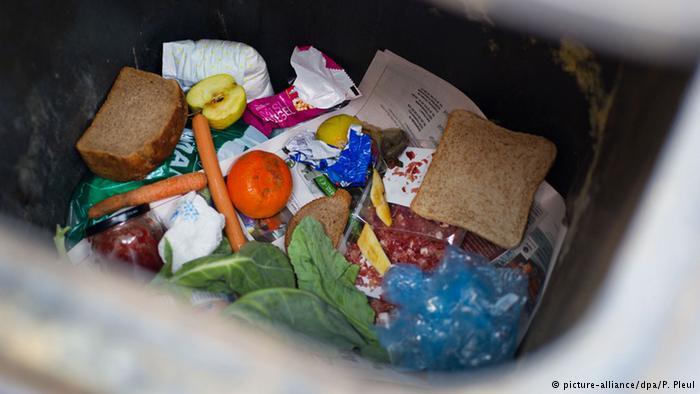The report, titled “The big throw away,” was published by the World Wide Fund for Nature (WWF) on Thursday in Berlin. While almost 1 billion people are suffering from hunger worldwide, the study showed that on average, Germany is throwing away 313 kg of edible food every second, with almost a third of the country’s groceries landing in the trash. Government action The WWF has now launched a petition calling on the German government to launch a national action plan to reduce waste by 50 percent in the coming years. WWF agricultural expert Tanja Dräger de Teran said the action plan should address not only the consumer but also wholesalers in the retail sector, canteen operators, and gastronomy. “The action plan must make a clear appeal to the economy,” said Dräger de Teran, adding that sanctions could eventually also be introduced to deter companies from wasting food. In the report, experts came to the conclusion that a large part of Germany’s food waste could be avoidable “through improved management across the value chain, more sustainable marketing strategies and changing consumer habits.” Around 90 percent of the country’s annual food waste could be reduced, for example, by targeting supermarkets. Another million tons could also be prevented from been thrown in the trash in German restaurants and cafeterias. Aesthetics over edible “At the moment, it’s as if we were to convert the states of Mecklenburg-Western Pomerania and Saarland into a huge field and simply discarded the harvest,” Christoph Heinrich of WWF Germany said Thursday. “Many foods are thrown away just because they don’t look nice,” Heinrich said, adding that the expiry date bears no relevance to whether a food is put on the table or in the trash. “Food waste prevention must be urgently put on the political agenda in order to promote climate protection and better protect farmland,” he said. In response to the study, Nicole Maisch, the Green party’s spokeswoman for consumer protection, also called on the country’s government to take action against food waste. “Sixty percent of waste is generated not in private households but in processing, food retail and the gastronomy sector,” Maisch said.











